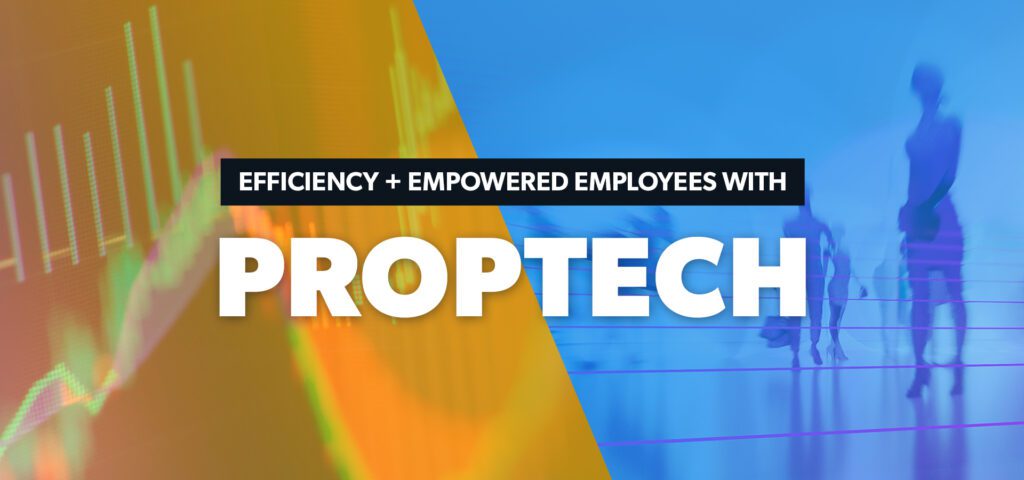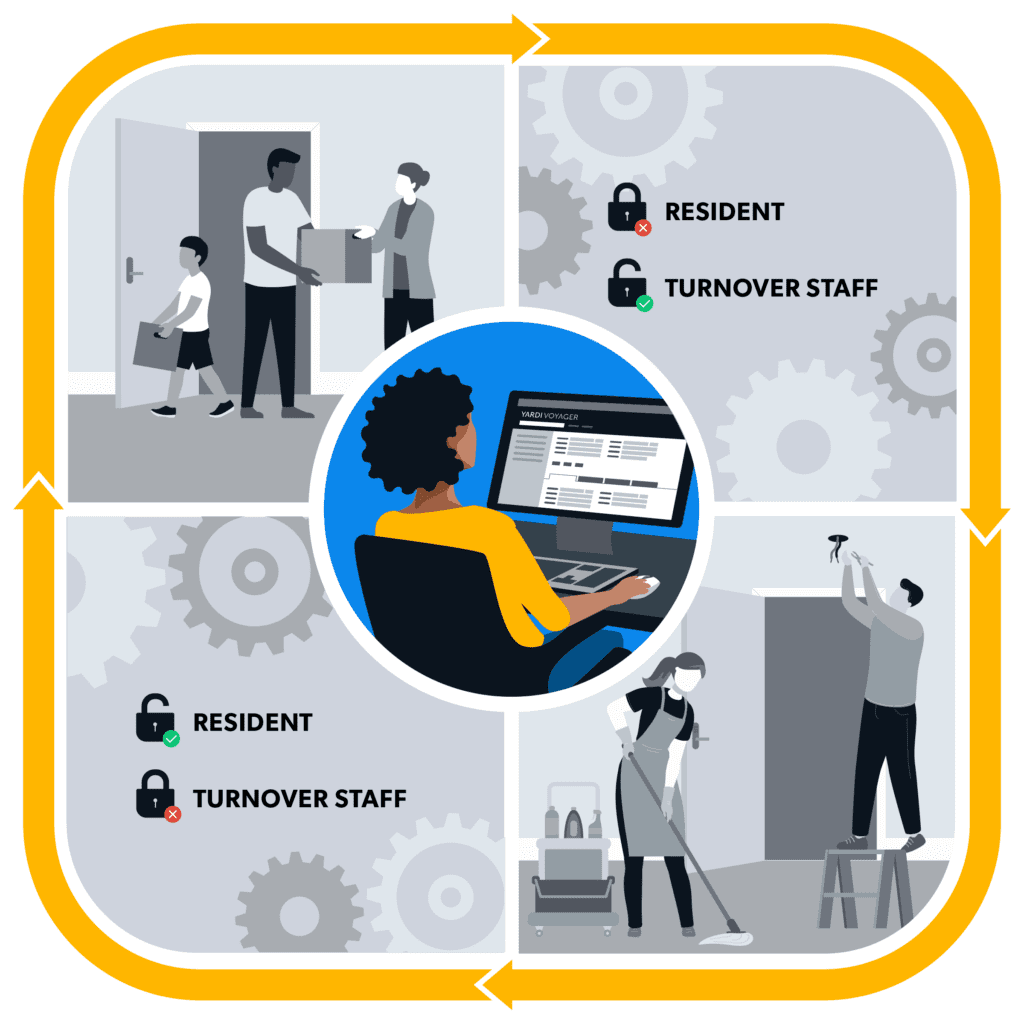5 Proptech Tips for Efficiency & Empowered Employees

Today, more than ever, we’re seeing technology become exponentially stronger and smarter with its ability to automate business processes left and right. While that’s amazing on the productivity front, it also leaves many to worry if technology will make some jobs obsolete. Sure, proptech can automate many repetitive tasks and often do them quicker and more accurately than humans. But there’s also the fact that’s dawning on many of us as this technology proliferates: It cannot perform many of the personalized, high-touch tasks that lie at the heart of exceptional resident experiences in multifamily communities.
Automate Business Processes to Reduce Overhead & Drive Profitability
So, let’s say you’re a multifamily operator or property manager, and you’re tasked with implementing proptech to automate business processes, trim costs and maybe even reduce headcount. What’s the best way to position this new proptech, while walking the delicate line between transparency and employee morale? A few thoughts below may help you craft your approach.
1. Foster More Collaboration
From the get-go, ensure buy-in from all your employees by reinforcing that proptech is not about replacing humans but augmenting their capabilities. During your research phase, collaborate with employees to identify pain points and areas where proptech can be leveraged to automate business processes and help teams work more collaboratively.

2. Focus on Efficiency and Effectiveness
There’s no doubt that all proptech is designed to help people do their jobs quicker and better. On a regular basis, your employees likely automate business processes like scheduling, report generation, email management and so much more. In RemoteLock’s case, we see our customers benefit from an advanced keyless solution that eliminates physical keys and mechanical locks along with all the daily hassles of tracking and replacing those keys, not to mention being on-site for emergency access or lock outs.
Take proptech one step further and you’ll see efficiencies grow exponentially. Those solutions that are built around an open API allow for integrations. For instance, an interoperable design like you find with RemoteLock’s access control software integrates with other proptech like Community Boss. Together, you get advanced access control plus community engagement software. Staff save tons of time using one streamlined solution to control access remotely, and manage amenities and parking.

3. Highlight Improved Safety and Security
Again, with proptech like RemoteLock, management, staff and residents never have to worry about copied or lost keys. Access is secured with an electronic credential that’s unique to each person’s permissions. Even outside vendors or services like dog walking and dry cleaning can have unique PINs that expire after set times. That, in itself, delivers peace of mind to all your staff and residents. It’s also a boon when attracting new residents or retaining current ones, and everyone loves a good selling point.

One more example to reinforce this point: RemoteLock’s integrations with leading PMS that automate access during unit turnovers. One of our multifamily customers has 50+ apartment communities and 3,000 units. With half of those units turning over every year, there’s a lot of access to juggle and get exactly right. Via the RemoteLock and Yardi Voyager® integration, this process is totally automated. Staff simply continue to use the Yardi interface they know, setting new residents to move in, setting old residents to move out, and assigning vendors to turnover tasks. Access codes are created and revoked automatically according to date fields in the PMS. You never have to worry about the liability of human error around access and someone having access where and when they shouldn’t—“a big security risk,” notes our customer.
4. Promote Employee Empowerment
Proptech can help facilitate and improve the flow of information, feedback and ideas within your team and across your organization, too. With that data flow in play, employees feel more empowered, informed and able to make better decisions. They can more easily self-direct, and now have the time needed to make creative and strategic contributions that ultimately strengthen individual teams and your organization as a whole. Bonus: All the above are selling points for both attracting new talent and retaining existing employees who are drawn to workplaces that prioritize the innovation and efficiency of proptech.
5. Dig Into Data
A prime benefit of proptech is its production of useful data. And whether it’s historical occupancy trends, lead tracking or automated communications to nurture prospects, property managers and leasing teams are routinely tapping into this data. On the access control front, RemoteLock also delivers data in reports that inform teams in a variety of ways, including:
- When a community’s amenities are used and by whom
- Where/when to turn down heating and cooling or certain lighting to save on energy costs
- Where/when maintenance staff has accessed a unit or common area

While reducing headcount with proptech may be a strategic imperative for some organizations, there are plenty of ways to highlight how this technology enhances employee productivity (e.g., automate business processes), empowers people and ultimately, increases their value. Do away with many of the menial tasks that can easily consume your staff’s workday, and you gain back time for more meaningful work, the kind of work your employees actually like to do.
So, when it comes to proptech, don’t ignore it, try to resist it or get stuck on what it might do to individuals. Instead, look at what you can do with the change. Embrace that and leverage it to your advantage. Proptech can be your most important strategy in reducing overall costs and delivering job satisfaction to all your employees.
Want to learn more about RemoteLock’s multifamily access software?

Aaron Sandager
SVP of Sales
Aaron has spent the last two decades leading sales in a variety of technology sectors, including software-defined server and storage, automation, virtualization, and both cyber and physical security. With a keen eye for recognizing customer pain points and how technology solves them, Aaron has the insight and experience to build and manage engaged sales teams who are driven by results.
